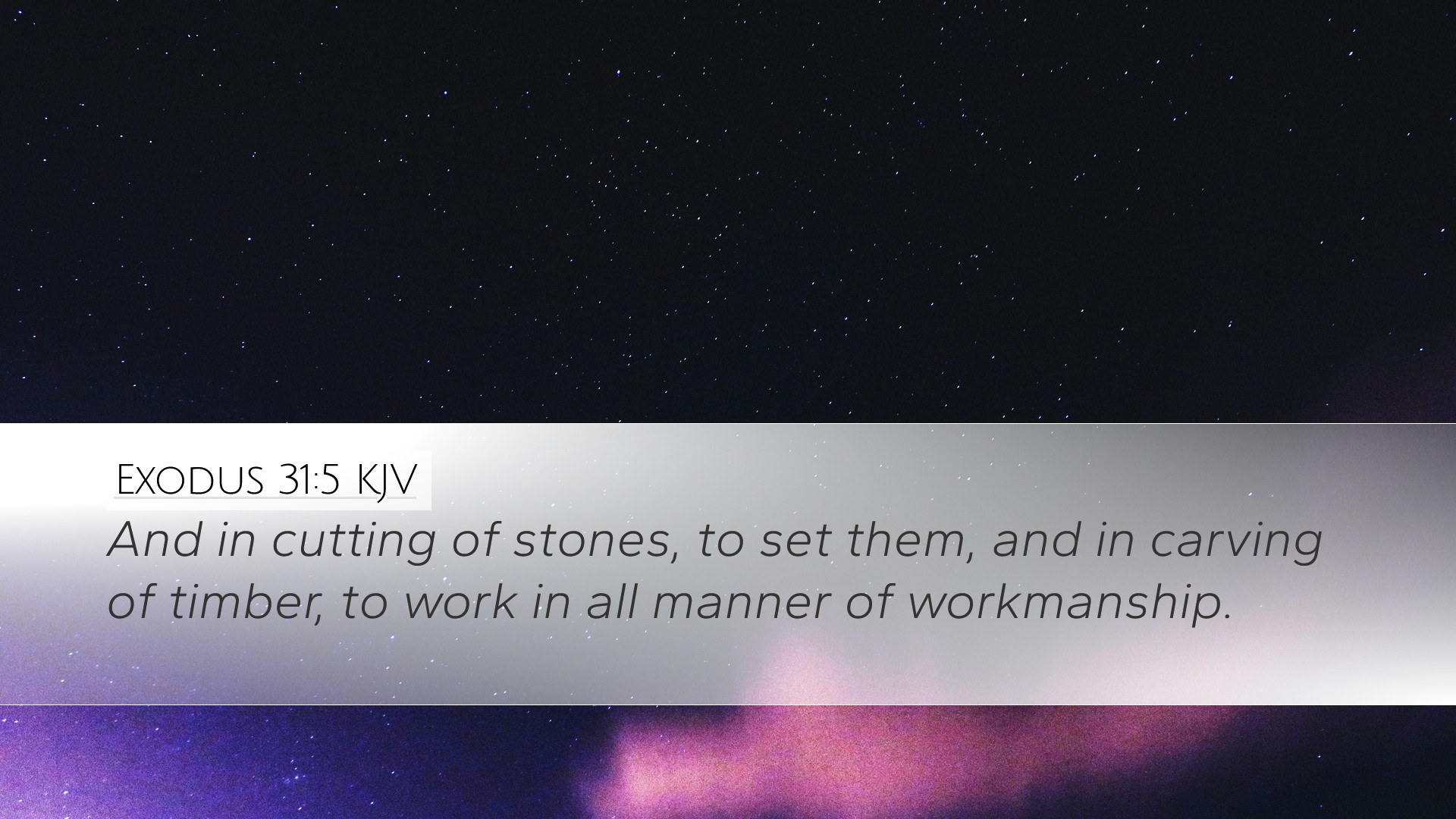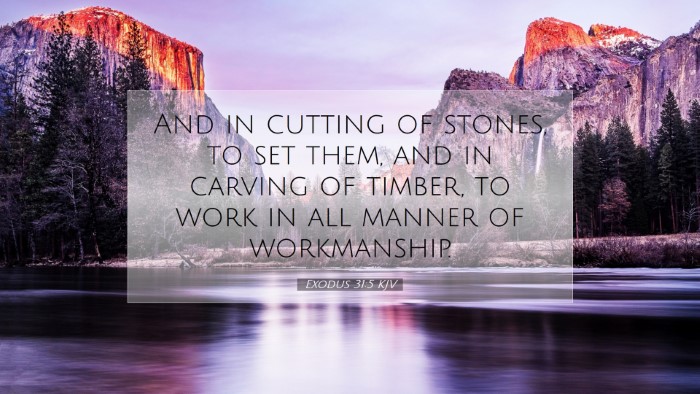Commentary on Exodus 31:5
Bible Verse: Exodus 31:5 - "And in cutting of stones, to set them, and in carving of timber, to work in all manner of workmanship."
Introduction
This verse comes from a passage in Exodus where God appoints Bezalel to oversee the construction of the tabernacle and its furnishings. The emphasis on craftsmanship highlights the importance of skill and artistry in the service of God. Various public domain commentaries provide valuable insights into the theological and practical implications of this verse.
Understanding the Context
This section could be seen as part of the broader narrative of the covenant relationship between God and Israel. Here, the Lord chooses skilled artisans to contribute to His sacred work:
- Divine Appointment: God's selection of Bezalel indicates that He values excellence in craftsmanship as an integral part of worship.
- Community Participation: The inclusion of artisans reflects the communal effort required in fulfilling God's instructions, emphasizing that every member has a role.
- Fulfilling Divine Instruction: This craftsmanship is not simply manual labor, but rather a holy task aimed at glorifying God.
Insights from Matthew Henry
In his commentary, Matthew Henry emphasizes the necessity of divine guidance in the arts and crafts. He argues:
- God’s Acknowledgment of Skills: Henry notes that God Himself endowed people with gifts and skills—these abilities should therefore be recognized and utilized in service to Him.
- Spirit of Wisdom: He highlights that the skill mentioned is a manifestation of God’s Spirit. This implies that creativity and craftsmanship can be seen as acts of worship when done in accordance with God’s will.
Insights from Albert Barnes
Albert Barnes provides a perspective focused on the nature of the work. He elaborates on:
- Carpentry and Stoneworking: Barnes explains that the referencing of stone and wood signifies the permanence and the foundational aspect of the tabernacle’s construction. It illustrates the importance of durable materials in a project meant to honor God.
- Skill in Labor: He stresses that the craftsmanship is not just manual but rather involves intellectual engagement. The work represents careful planning and execution under divine inspiration, serving God's purpose.
Insights from Adam Clarke
Adam Clarke focuses on the implications of skilled labor within the context of worship. His key points include:
- Divine Origin of Skills: Clarke points out that the ability to craft and create is a gift from God, stating that He equips individuals uniquely for their tasks in ministry and service.
- Theological Significance: The labors of Bezalel and his contemporaries are seen as sacred work—Clarke notes that every act of creation reflects the Creator's glory and serves to elevate the spiritual atmosphere.
Practical Applications
As we reflect on Exodus 31:5, there are several practical applications for today’s believers:
- Encouragement of Skills in Ministry: Every skill, whether intellectual, artistic, or practical, can be leveraged for ministry. Churches should foster environments where creativity and talent are nurtured.
- The Holiness of Work: Understanding that all work can be sacred encourages believers to view their vocations—be it commerce, arts, or sciences—as a form of worship.
- Divine Inspiration in Creativity: Encourage individuals to seek God’s guidance in their creative endeavors, as their craftsmanship can echo His glory and purposes.
Conclusion
Exodus 31:5 speaks profoundly about God's view of craftsmanship and skill as acts of service and devotion. The insights from public domain commentators bring forth the understanding that every act of creation is ultimately a reflection of our Creator. As such, believers are called to pursue excellence in all endeavors, making a joyful offering of their talents to God.


